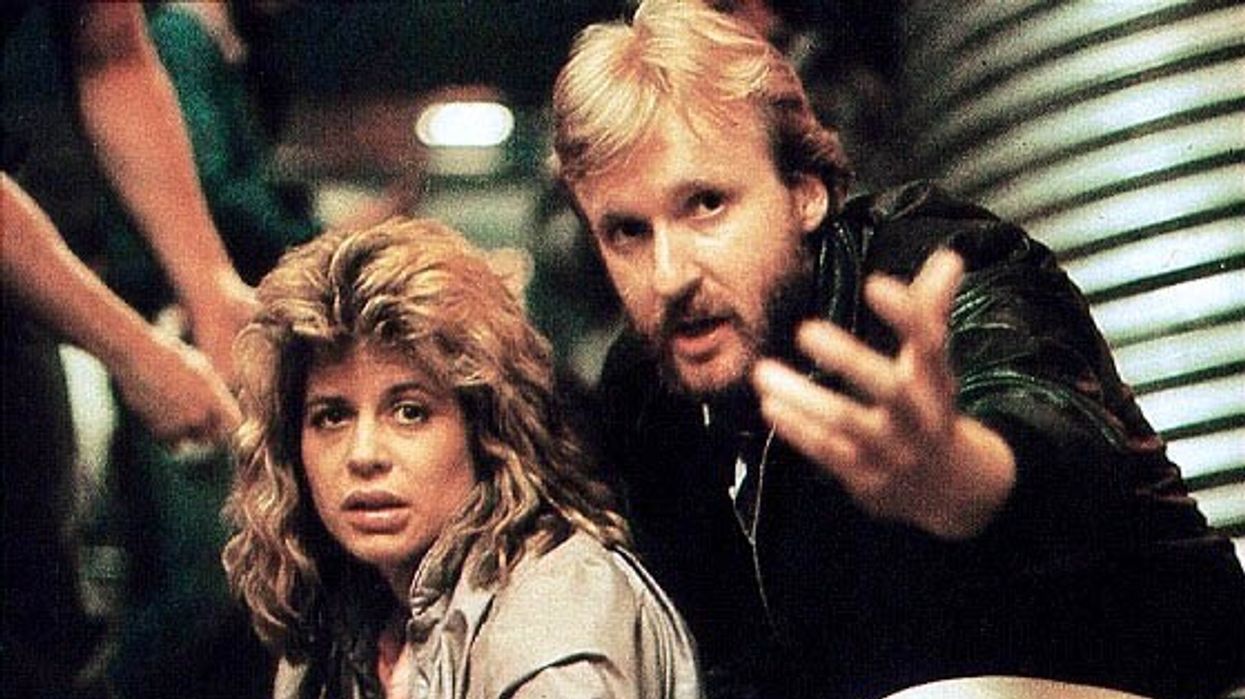James Cameron Reveals What's Next for Cinema
The Avatar director is one of the greatest filmmakers in cinema history. He has changed with every decade. Where is he going next?

If you're like me, you spend a lot of your time waiting for the next James Cameron announcement. While shooting is underway on the latest Avatar, I wanted to take a look back on some of Cameron's films like Titanic and Avatar and see what he sees as the future of film.
Check out the video for BAFTA Guru and let's talk Cameron after the jump!
Titanic
The idea for the movie came from Cameron exploring a shipwreck. He was in the ocean and doing his research, and knew his bucket list expedition would be the Titanic.
After doing some research, he had a film in his mind. But was unsure who would ever want to buy it. At the time, Peter Chernin ran Fox. Cameron, who says he's bad at pitching, just grabbed a book of portraits of the boat and got a meeting with Chernin.
According to Cameron, he walked into Fox, showed the book of portraits and said "Romeo and Juliet on the Titanic."
That was it. They bought it in the room and that's when the real work began.
Cameron knew he could push the limits on technology to get the movie going forward. It would be a massive undertaking but he had faith that he and his company could continue to push the gamut of what was possible in order to wow audiences.
But writing characters was not so easy. Would anyone want to spend three hours inside a love story? The simple answer was "yes." But for a much more complicated reason.
Cameron realized that, because audiences would always know the ending of Titanic, they would be on the edge of their seats the whole time. That meant he could film a two-hour love story in the traditional sense and people would sit through it because there was a one-hour disaster film coming.
In the end, we all learned that Cameron was both a master storyteller and filmmaker. But that didn't fulfill him.
AfterTitanic, Cameron found thrills in actual exploration so he took some time off.
Avatar
Cameron actually wrote the screenplay for Avatar before Titanic was even shot. But there was no way technology was ready to make that movie. In 1995, Cameron was the guy you went to when you needed VFX. If he couldn't crack it, no one could.
Even after Titanic, he still didn't have the answers.
But by 2005, they knew the tech was very close, so they took the next two years to perfect it and then shot the movie. He learned from mistakes made by other movies and figured out how to get the maximum amount of facial data and eye data by creating a head rig that locked a close up 100% of the time. That data was turned into information and put into a computer so they could manipulate it in post.
Avatar supplanted Titanic in 2009 as the highest-grossing film of all time. While that record no longer stands, Cameron's technical achievements do.
And that's what he thinks is next inside Hollywood.
What's next for Cameron (and Cinema)?
So where will cinema go? Cameron has his finger on the pulse, mostly because it feels like people are always waiting to see what he does next.
Cameron understands that all innovation comes from meandering. He spent the entire time between Titanic and Avatar doing it!
So the challenges he set for himself are essential to his process. He wants to meander less and work more. That means allowing the lines between CG and cinematography completely disappear. And make sure the audience can't see a difference as well.
We already fake sunlight and moonlight on sets, now it's time to play with every other component.
This is an ambitious goal, but one he hopes he conquers with the next Avatar films. With Cameron, the sky is the limit.
What's next? Every James Cameron movie ranked!
James Cameron movie rankings are bold and probably misguided. But we're doing one anyway!











